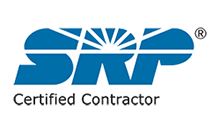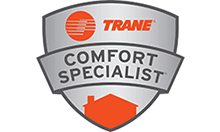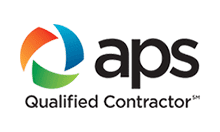Have you ever gotten up off of the couch and turned on a light switch and received an annoying shock? How about cleaning your home, only to realize that it’s dirty/dusty the next day? If you have school aged children, how often are they getting you sick from the germs they bring home from school? Or how many times a year are you sitting in the doctor’s office with your sick child? Obviously, the air quality within your home isn’t going to stop your child from getting sick while at school, but it can play a big part in keeping you from getting what they bring home.
According to the Environmental Protection Agency (EPA), indoor air can be up to 100 times more polluted than the outside air. How is this possible? If you’ve ever moved into a new home, think back to the “new home smell”; the fresh paint, the new carpet, new cabinetry, etc. The ugly truth is that all of the building materials, carpet, paint, flooring, etc., give off Volatile Organic Compounds (VOC’s). Concentrations of VOC’s can be as much as 10 times higher indoors than outdoors, and can have short term and long term adverse health effects. That brand new home could be killing you?
What steps can you take to protect yourself from VOC’s, viruses and bacteria, and improve the indoor air quality within your home?
-
Install an air purification system.
There are products on the market, specifically the REME Halo Advanced Oxidation System, which purify the air within the home, by killing and neutralizing bacteria, viruses, VOC’s, and odors. This will protect you from VOC’s, but will also actively kill bacteria and viruses throughout the home’s air and surfaces. All the germs the kids bring home from school.
-
Improve filtration.
There are pros and cons to buying cheap air filters. The spun fiberglass type aren’t very restrictive, thus taking less of a toll on your air conditioner. This reduces the strain put on the system, but doesn’t trap the smaller particles. The pleated type filters are usually more restrictive, meaning they catch more of the smaller particles, but they also increase the strain placed on the air conditioner, by restricting the airflow through the filter. Honeywell has a 4″ pleated filter that fits into most return air grills, which has a MERV 10 rating, meaning it is less restrictive than regular pleated filters, but has a higher “arrestance”. MERV = Minimum Efficiency Reporting Value. The higher the number means the filter is less restrictive to the airflow, and the more effective it is at catching the smaller particles.
-
Humidification.
We live in a dry environment, yet the optimal indoor relative humidity is around 40% – 50%. Too little indoor humidity can result in those annoying shocks. Additionally, in cold and flu season, too little humidity can cause a person’s mucous membranes to dry out and crack, thus allowing viruses and bacteria an easy path into your bloodstream, resulting in a nasty cold. Installing a humidifier that works in conjunction with your HVAC system is the best way to achieve optimal indoor relative humidity.
Stay tuned for more. Over the coming weeks we will go into each of the three items listed above and talk about features and benefits of each, as well as other products that are available to help you breathe easier and live better.











